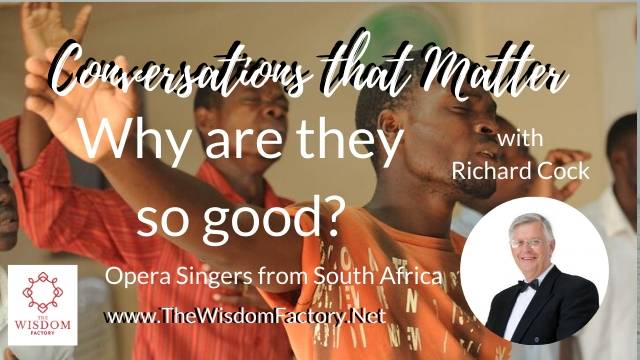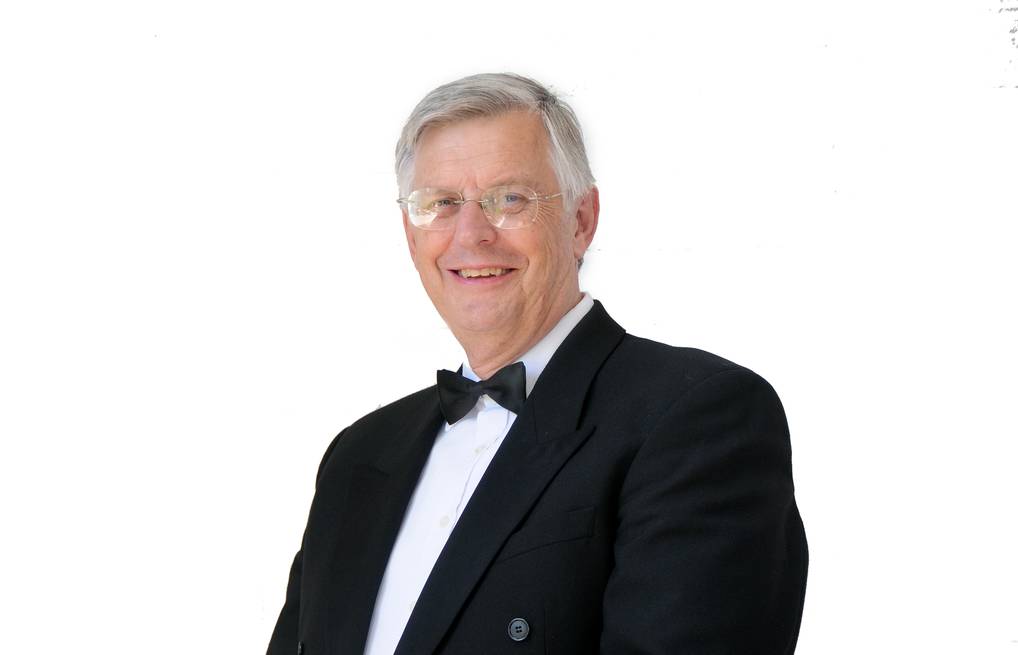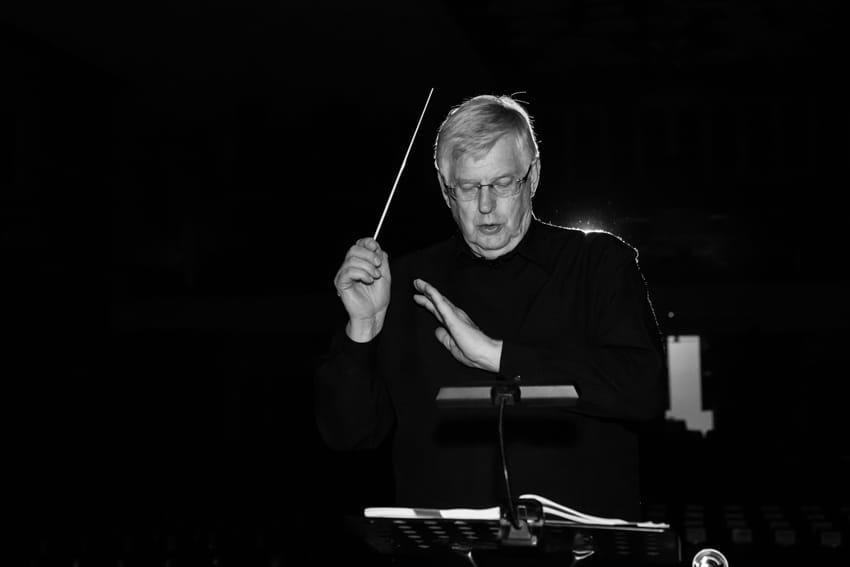
CONVERSATIONS THAT MATTER – AFRICAN DIALOGUES
Why are they so good? – Opera Singers from South Africa
A conversation with Richard Cock

HEIDI WRITES
In the last few decades, more and more opera singers from South Africa win international singing competitions and get engaged in world renowned opera houses.
Opera, the drama in music, definitely comes from European countries, especially Italy. Monteverdi is said to have established the genre “Opera” which was “invented shortly before by Jacopo Peri in the late 16th century. Then it expanded to Germany and to the west and east alike, bringing forth music with particular characteristics. German opera is different from French, Russian or Italian opera. But all have in common: They use stories for the libretto, often with dramatic content, they are grounded in European culture and the singers were Europeans
Up to not long ago, Cio Cio San in “Madama Butterfly” was dressed as Japanese and made up oriental looking, Otello or Monostatos were blackened with coal to be recognized as “negroes”. In times of colonialism, the “blacks” were often given the role of the emotional , jealous and unreasonable killer (Otello), or the “bad guy” in general (Monostatos). But what if the masterworks of European Culture are spreading in a multicultural world and the singers in “white” drama are no longer exclusively white? And what, if we find out that black people might have highly attractive sounding voices who find their place among the world’s best singers? And how do black singers feel, if for them the roles of the bad guys are “naturally” theirs?
In my conversation with Richard Cock, leading force for classical music in South Africa, we explored these topics, as well as the difficulties – and advantages – of being dedicated to this music in South Africa.
So why are these black singers so good? One answer is the language. Zulu has vowels very similar to Italian, so the opening of the voice is natural (as it was in Italy in the past). The other answer is their love for storytelling which draws them to sing opera, coming from a musical background of choir singing in their communities: A quasi natural expansion of repertoire and passion.
There is something special about these voices, not only the sound and the singing technique. They speak directly to the heart, probably due to their groundedness in their own culture where the heart is the basic source of life and relationships, a culture which is not yet subdued to the thinking mind as it is in our western countries.
In “Integral” speak: they come from a purple background The western opera was born with enlightenment, the era of reason. This marked the beginning of the orange level of development ( in the color code of Spiral Dynamics), which, unfortunately, suppressed the qualities of purple and centered life away from the heart towards the head. But deep in us remains this yearning for being touched in our hearts. Opera always succeeded to do that and we can live it intensely while listening to these special African voices.
About Richard Cock
 Richard was born in Port Elizabeth and educated at Woodridge Preparatory School and the Diocesan College, Cape Town. He pursued his musical studies at the Cape Town College of Music, where he graduated in 1971. In 1972, he won a scholarship to the Royal School of Church Music (RSCM), where he was awarded several prizes and diplomas. In 1978 he became Director of Music at the Cathedral Choir School and assistant organist at Chichester Cathedral. During his years in England he became a Fellow of the Royal College of Organists.
Richard was born in Port Elizabeth and educated at Woodridge Preparatory School and the Diocesan College, Cape Town. He pursued his musical studies at the Cape Town College of Music, where he graduated in 1971. In 1972, he won a scholarship to the Royal School of Church Music (RSCM), where he was awarded several prizes and diplomas. In 1978 he became Director of Music at the Cathedral Choir School and assistant organist at Chichester Cathedral. During his years in England he became a Fellow of the Royal College of Organists.
After his return to South Africa in 1980, Richard breathed new life into the National Symphony Orchestra as Music Director from 1991. However, it is as a choral trainer and conductor that he is best known. He was organist and director of music at St Mary’s Cathedral for 12 years and was elected a Fellow of the Royal School of Church Music for his services to church music in South Africa. He founded the Symphony Choir of Johannesburg and the internationally recognized Chanticleer Singers in 1980.

In 1999, Richard left the orchestra to pursue a freelance career and to stimulate music activities throughout South Africa. As a conductor, he is in much demand countrywide. In May 2000, he rec
eived an Honorary Doctorate in music from Rhodes University. In 2012 he received a Parnassus Award from Stellenbosch University and in 2013 a special award from the ATKV for his 30 years’ dedication to spreading the love of music in South Africa. In November 2014 he received a Lifetime Achievement Award from the Arts & Culture Trust.
He is chairman of the Apollo Music Trust, and, with Florian Uhlig, he directs the Johannesburg International Mozart Festival which is held every January.
RESOURCES
Richard Cock conducting and South African Singers at international competitions





Leave A Comment